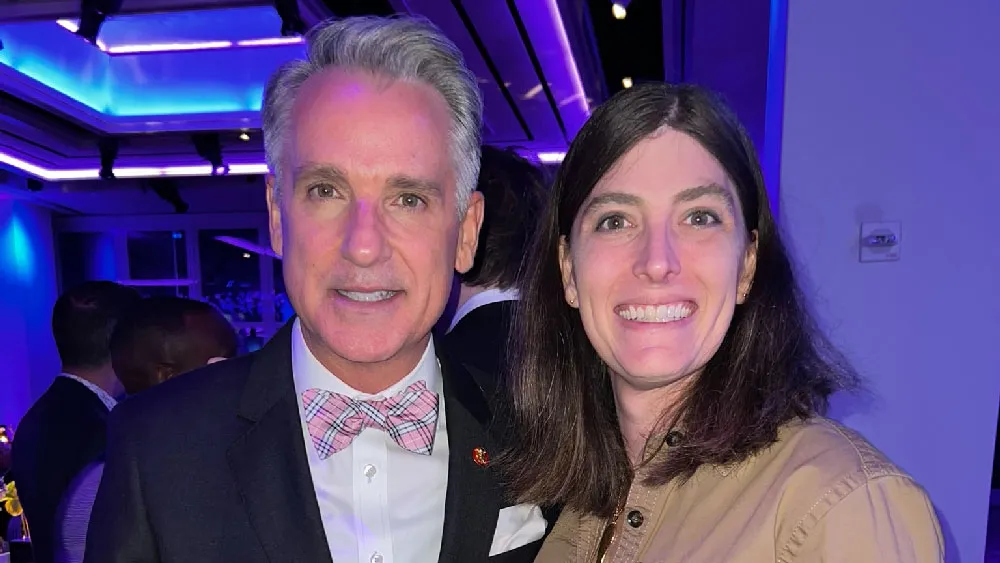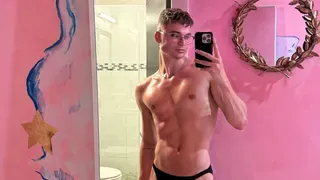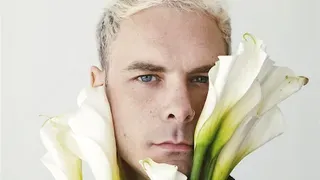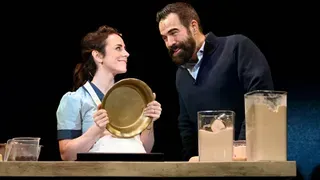June 14, 2007
Through the years with Kiki and Herb
Robert Nesti READ TIME: 10 MIN.
They've survived bad press, bad gigs, bad wigs, bad marriages and ass cancer. They've been institutionalized, marginalized, and glassy eyed. From seedy East Village cabarets to cruise lines to Broadway, they've shared with audiences, no matter how unwilling, their love of music and their passion for life. They're song stylists Kiki and Herb, and if they haven't quite proven their critics wrong, they've at least outlived them.
Since meeting in the Pennsylvania Eerie Children's Institute in 1934, sultry singer Kiki and ivory tinkling Herb have been the world's most codependent musical act. Their career has had more ups and downs than a presidential polygraph, from early success in New York to critical indifference to their LPs to a career-defining European debut at the Grand Casino in Monoco. Alas, personal tragedy intervened, and the duo soon faded back into obscurity. For many years they were off the cultural radar, only seen sporadically performing on cruise lines, their sporadic albums destined for the bargain bins.
But the irrepressible pair never stopped following their dreams, and the world finally began to catch on to their unique charms in the mid-90s. In New York City, downtown hipsters began to attend Kiki and Herb performances, reveling in their tales of surviving show business and their indescribable covers of everything from Nina Simone to Nirvana. National tours followed, and recently the pair had a sold out, Tony-nominated run on Broadway. Now the Huntington Theatre brings that triumphant show to Boston for a limited engagement running through June 30 at The Boston Center for the Arts.
Not wanting to be johnny-come-latelies, we examine Kiki and Herb's recording history. We scoured every thrift store in town to find these rare albums. We strained to catch each golden drop of goodness over the hiss of scratchy vinyl and scratchier, gin-soaked vocal chords. What we found amazed and sometimes horrified us.
The Hazy Days of Kiki
In retrospect, it's easy to see why this 1957 debut album was universally ignored. The attempt to blend cocktail party jazz with a blues album simply alienated both possible audiences. No hostess would play the saucy You Can Ring My Doorbell But Don't Knock My Knockers during a dinner party, while adults looking forward to the naughty fun of a racy album were unlikely to be interested in Kiki's interpretations of Skylark and Pirate Jenny. Although the album is mostly a curiosity, the interesting duet of Bull Moose Jackson's Big Ten Inch has to be heard to be believed.
The Wild Nights of Kiki and Herb
The duo really come into their own on this 1960 album. Kiki's voice has a purity and lightness that may surprise those familiar with her later work, and Herb's arrangements are amongst his most interesting. However, while the bongos are a pleasant surprise they are perhaps overused, particularly in the Rogers and Hammerstein medley. The urban legend of Betty Friedan being inspired by the novelty song Feminine Mistake seems improbable; perhaps it arose from the lyrical ambiguity of the phrase "sanitary napkin."
Kiki and Herb sing the Alan Sherman Songbook
In an interview with the Fresno Bee in 1991, Kiki admitted this album was doomed from the start. "It was my idea. I thought it was important for Herb to get in touch with his anti-Semitic [sic] roots, and Sherman was all I could come up with. How was I supposed to know that Kern, Blitzstein, and Hammerstein were all Jews?" Still, the operatic cover of Hello Muddah, Hello Faddah is memorable, with Kiki's voice soaring over dueling theremins.
Schoolhouse Rye
In one of many should-have-been-a-comeback moments, Kiki & Herb were selected to record the song Rufus Xavier Sarsaparilla for Schoolhouse Rocks. Unfortunately they arrived at the studio "jetlagged" (read: inebriated) and were unable to get through the number's complicated lyrics and tricky chord changes, especially when Kiki began singing about Rufus Failure Cocksucker. This ultra-rare bootleg remains the Holy Grail for Kiki and Herb fans. The final 30 seconds, a harpylike screed from Kiki that culminates with "stick that in your conjunction junction" now graces our answering machines.
Why Can’t We Go On As Three?
It's a shame the scandalous behind the scenes stories have eclipsed this album of duets featuring many of Kiki and Herb's contemporaries. Although Eydie Gorme, who declined to participate, called the project "the musical equivalent of a pity fuck," the results are nothing to laugh at. The twangy duet I'm In Your Glove Compartment with Marie Osmond is undeniably catchy, and Kiki and Shirley Jones harmonize beautifully on The Night the Lights Went Out in New Jersey. Perhaps the forthcoming remastered CD will dispel the stories of the screaming matches with Shirley Bassey and the threeway with Johnny Mathis.
Whities on the Moon
This now-legendary spoken world album shows that even Kiki and Herb could be innovators. With one foot in the beatnik coffeehouses where they cut their teeth, and the other in the burgeoning world of rap, this album is musically groundbreaking - but, it must be admitted, lyrically disappointing, with most of the selections based either on the poetry of Rod McKuen or Kiki's diary. Herb's Ode to Jonathan Livingston Seagull is a standout, with the hypnotic chant "looping, swooping and pooping" crawling into your cerebellum and throwing open the doors of perception.
Claws to Reflect
Desperate to find new audiences, Kiki and Herb released a disco album in 1980. Although punk and New Wave were supplanting disco in the U.S, the album did well on the international charts, and Kiki and Herb remain popular in Yemen to this day. Most of the songs are forgettable, but guest Bootsie Collins gives These Boots Are Made For Drinking a power boost, and the uptempo cover of It Must Be Him is a glass-shattering roller boogie breakdown which is said to have made Vicki Carr weep...and consider litigation.
I Date a Datum
Now only a few years behind the curve, Kiki and Herb explored New Wave in this 1985 EP. The overall sound is reminiscent of Kraftwerk meets Juice Newton, with Kiki singing through a cardboard tube over Herb's spare Casio tones. It's arguably their most interesting album, though they immediately returned to light jazz without a look back. In a 1997 interview with Cat Fancy, Herb attributed the album to "having a crush on two of The Thompson Twins" but refused to elaborate.
Robert Nesti can be reached at [email protected].







